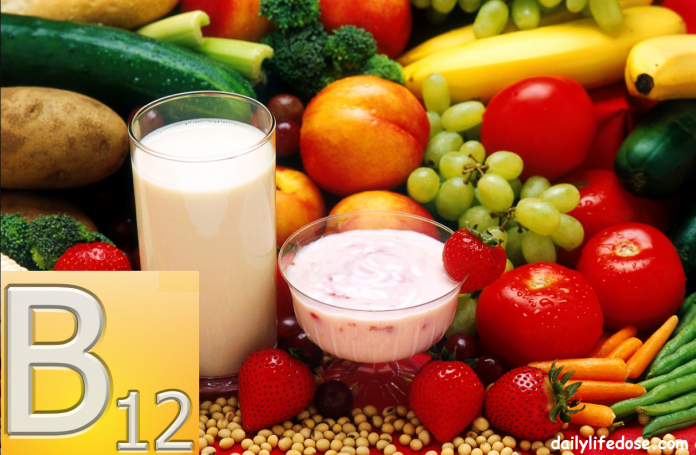Vitamin B is a type of water – soluble vitamin and plays a vital role in the cell metabolism. It is further divided into eight parts namely B1, B2, B3, B5, B6, B7, B9, and B 12. Though they are the parts of the same vitamin but still they are totally different from each other.
B1/Thiamines:
B1, also known as Thiamine, is involved in RNA and DNA production as well as nerve function. It is classified as a B – complex vitamin. It is a key player in the production of energy. Also, this vitamin offers nervous system support. It plays a key role in the structure and integrity of the brain cells. Its active form is a co-enzyme called thiamine pyrophosphate, which takes the part in the conversion of pyruvate to acetyl coenzyme A.
Riboflavin/ B2:
B2, also known as Riboflavin, is a precursor of co-factors called FMN and FAD, both of them are needed for flavoprotein enzyme reactions. This is probably the only vitamin which gives you the clue about its presence inside your body. It promotes energy production and offers antioxidant protection. It is one of those nutrients which are required to recycle glutathione. Apart from this, vitamin B2 is also helpful in promoting iron metabolism.
B3/Niacin:
B3, also known as Niacin, is composed of two structures i.e. nicotinamide and nicotinic acid. Like other B vitamins, this one is also helpful in energy productions. There are two unique forms of vitamin B3 i.e. nicotinamide adenine dinucleotide or NAD and nicotinamide adenine dinucleotide phosphate (NADP). Both of them plays important role in energy transfer reactions. Apart from this, it is helpful in antioxidant protection.
B5/Pantothenic acid:
B5, also known as pantothenic acid, is a precursor of coenzyme A. This vitamin involves in the oxidation of fatty acids and carbohydrates. It is commercially available as D – Pantothenic acid and is frequently used with other B vitamins. This vitamin is used for the treatment of dietary deficiencies, acne, allergies, asthma, alcoholism etc.
VITAMIN A – BENEFITS, SOURCES & EFFECTS OF DEFICIENCY
B6/Pyridoxine:
B6, also known as Pyridoxine, is water – soluble vitamin. Like other B vitamins, this one is also helpful in the metabolism reactions. Vitamin B6 is helpful in the production of red blood cells in our body. Apart from this, it also involves in various steps in the metabolism of carbohydrates. This vitamin is also helpful in maintaining the health of our brain and nervous system. Also, vitamin B6 is one of the most important vitamins and is used for liver detoxification.
B7/Biotin:
B7, also known as Biotin, is a critical coenzyme of four elements i.e. Acetyl CoA carboxylase, pyruvate CoA carboxylase, β – methyl crotonyl CoA carboxylase and propionyl-CoA carboxylase. This vitamin is formerly known as vitamin H but now it is known as vitamin B7 and is needed by all the organisms. There are eight different biotins but the only D – Biotin occurs naturally and has full vitamin qualities.
B9/Folic Acid:
B9, also known as Folic Acid, acts as a coenzyme in the form of tetrahydrofolate and is used in the metabolism of amino and nucleic acids. This belongs to the family of water – soluble vitamin includes in our daily diet. It performs the vital functions of our body right from RBC formation to energy productions.
B12/Cobalamin:
Last but not the least is Vitamin B12 which is also known as Cobalamin. This vitamin is essential in the production of blood cells in the bone marrow, and for nerve sheaths and proteins. It also functions as the coenzyme and is involved in the metabolism reactions. It is responsible for the smooth functioning of several body processes and helps in keeping the red blood cells healthy.
Source of Vitamin B:
Vitamin B can be easily obtained from the food we eat. Whole grains, legumes, potatoes, bananas, chili peppers, nutritional yeast, tuna fish etc are the major source of this vitamin. Vitamin is generally added to the energy drinks which are easily available in the market.
Diseases caused by the Deficiency of Vitamin B:
| Vitamin | Disease |
| Deficiency of Vitamin B1 causes | Beriberi, korsakoff syndrome |
| Deficiency of Vitamin B2 causes | Ariboflavinosis |
| Deficiency of Vitamin B3 causes | Pellagra |
| Deficiency of Vitamin B5 causes | Acne, Paresthesia |
| Deficiency of Vitamin B6 causes | Tiredness, bad metabolism, various disorders |
| Deficiency of Vitamin B7 causes | Impaired growth and neurological disorders |
| Deficiency of Vitamin B9 causes | Macrocytic anaemia |
| Deficiency of Vitamin B12 causes | Macrocytic anaemia, sometimes deficiency leads to paralysis |












